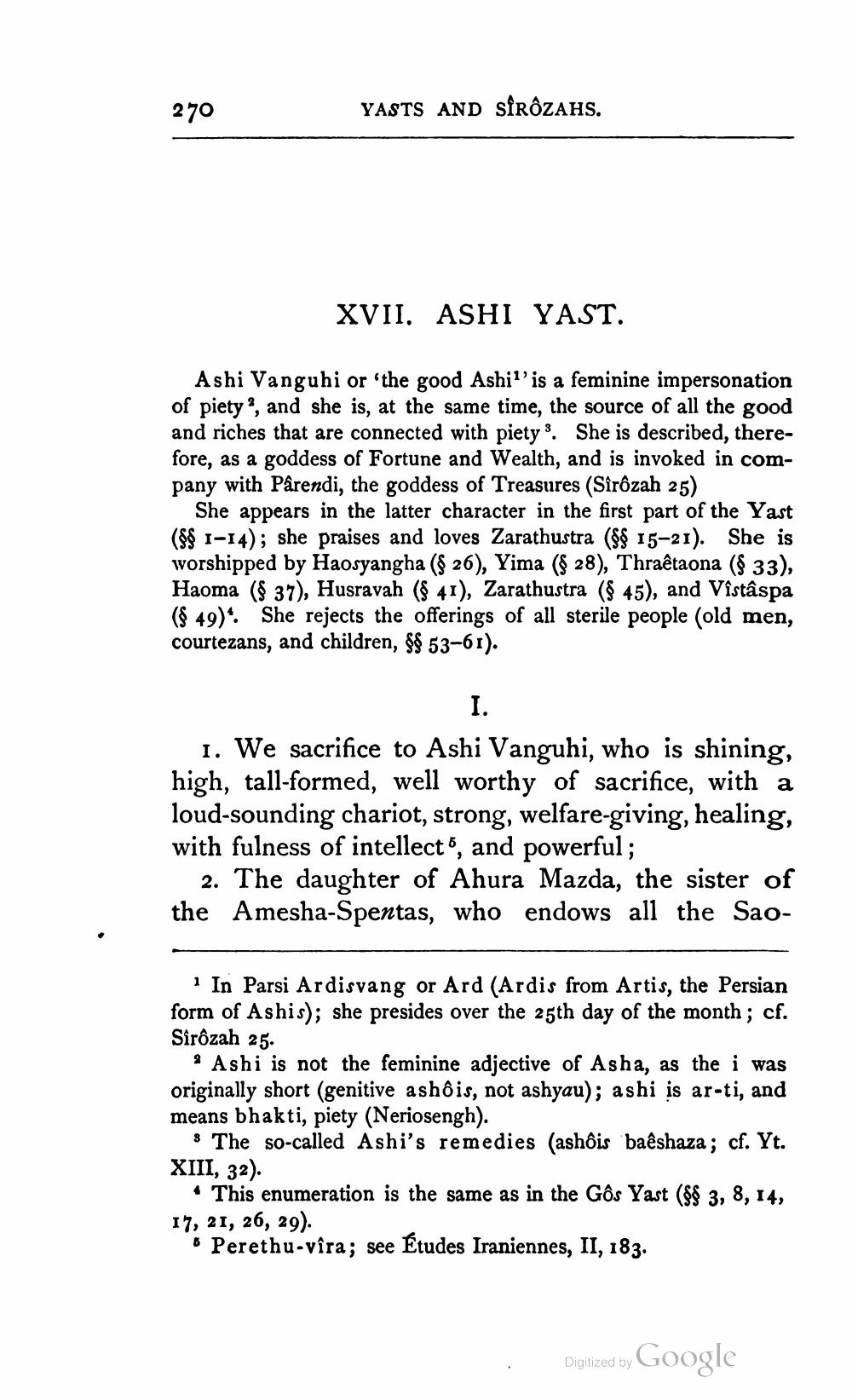________________
270
YASTS AND STRÔZAHS.
XVII. ASHI YAST.
Ashi Vanguhi or 'the good Ashi?' is a feminine impersonation of piety?, and she is, at the same time, the source of all the good and riches that are connected with piety. She is described, therefore, as a goddess of Fortune and Wealth, and is invoked in company with Pârendi, the goddess of Treasures (Sîrôzah 25)
She appears in the latter character in the first part of the Yast (S$ 1-14); she praises and loves Zarathustra (&$ 15-21). She is worshipped by Haosyangha ($ 26), Yima ($ 28), Thraêtaona ($ 33), Haoma ($ 37), Husravah (8 41), Zarathustra ($ 45), and Vîstâspa ($ 49)". She rejects the offerings of all sterile people (old men, courtezans, and children, $$ 53-61).
1. We sacrifice to Ashi Vanguhi, who is shining, high, tall-formed, well worthy of sacrifice, with a loud-sounding chariot, strong, welfare-giving, healing, with fulness of intellect®, and powerful;
2. The daughter of Ahura Mazda, the sister of the Amesha-Spentas, who endows all the Sao
* In Parsi Ardisvang or Ard (Ardis from Artis, the Persian form of Ashis); she presides over the 25th day of the month; cf. Sirôzah 25.
9 Ashi is not the feminine adjective of Asha, as the i was originally short (genitive ashộis, not ashyau); ashi is ar-ti, and means bhakti, piety (Neriosengh).
8 The so-called Ashi's remedies (ashốis baêshaza; cf. Yt. XIII, 32).
• This enumeration is the same as in the Gôs Yast ($$ 3, 8, 14, 17, 21, 26, 29).
Perethu-vîra; see Études Iraniennes, II, 183.
Digitized by Google




